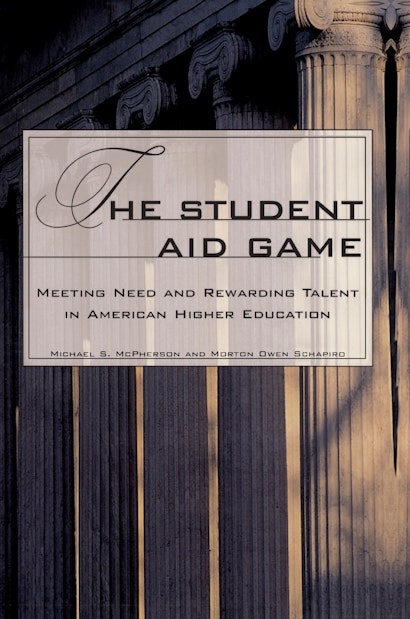The Student Aid Game: Meeting Need and Rewarding Talent in American Higher Education


Paperback
- Price:
- $55.00/£45.00
- ISBN:
- Published:
- Jan 3, 1999
- Copyright:
- 1997
- Pages:
- 176
- Size:
- 6 x 9.25 in.
- 3 line illus.
- Main_subject:
- Education
ebook
Student aid in higher education has recently become a hot-button issue. Parents trying to pay for their children’s education, college administrators competing for students, and even President Bill Clinton, whose recently proposed tax breaks for college would change sharply the federal government’s financial commitment to higher education, have staked a claim in its resolution. In The Student Aid Game, Michael McPherson and Morton Owen Schapiro explain how both colleges and governments are struggling to cope with a rapidly changing marketplace, and show how sound policies can help preserve the strengths and remedy some emerging weaknesses of American higher education.
McPherson and Schapiro offer a detailed look at how undergraduate education is financed in the United States, highlighting differences across sectors and for students of differing family backgrounds. They review the implications of recent financing trends for access to and choice of undergraduate college and gauge the implications of these national trends for the future of college opportunity. The authors examine how student aid fits into college budgets, how aid and pricing decisions are shaped by government higher education policies, and how competition has radically reshaped the way colleges think about the strategic role of student aid. Of particular interest is the issue of merit aid. McPherson and Schapiro consider the attractions and pitfalls of merit aid from the viewpoint of students, institutions, and society.
The Student Aid Game concludes with an examination of policy options for both government and individual institutions. McPherson and Schapiro argue that the federal government needs to keep its attention focused on providing access to college for needy students, while colleges themselves need to constrain their search for strategic advantage by sticking to aid and admission policies they are willing to articulate and defend publicly.

